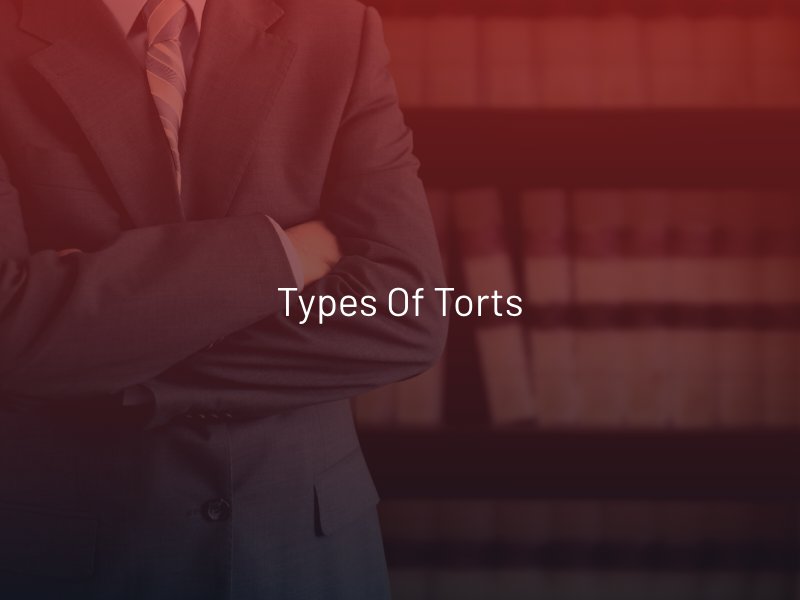Types of Torts
A “tort” is the legal term for a wide range of wrongful actions that inflict a loss or harm to a victim. Torts form the basis for tort law. When part of civil litigation, tort law is designed to help victims obtain damages (compensation) for their losses rather than prove criminal liability. Understanding the types of torts can help you recognize when you can file a civil lawsuit.

What is a Tort Case?
A tort may be both a civil wrong and a crime. For example, a person who punches another individual might be tried in criminal court for assault and face prison time if convicted. At the same time, the victim might pursue the offender through civil court for damages. Civil court allows the victim to receive justice in the form of monetary compensation. Damages may be recovered for past, present, and future physical, psychological, and emotional harm. The injured party or their surviving family members can bring an intentional tort case or one based on negligence or strict liability.
Intentional Tort
Intentional torts are pursued for wrongful actions intentionally carried out to cause harm to another person or their property. The harm can be a physical injury, death, loss of or damage to property, emotional distress, a violation of rights, or a combination of those adverse outcomes. The defendant may face both criminal and civil liability for an intentional tort.
Common Examples of Intentional Torts
- Battery
- Assault
- Sexual Assault
- False imprisonment
- Intentional infliction of emotional distress
- Fraud
- Defamation
- Burglary
- Invasion of privacy
Negligence
Negligence is the most common type of civil tort, and they do not involve deliberate actions. The negligent individual was careless and failed to provide a duty owed to another person, resulting in harm. The plaintiff (victim) must clearly and convincingly establish the following four elements:
Duty of Care
The defendant (at-fault party) had a legal responsibility to act with a certain level of caution to prevent harm.
Breach of Duty
The defendant knowingly or carelessly failed in their duty to prevent another from being harmed (negligence).
Causation
The defendant’s breach of duty was the “proximate cause” of the plaintiff’s injury. In other words, the injury would not have occurred if not for the defendant’s negligence.
Damages
The plaintiff suffered verifiable financial, physical, and/or psychological losses.
Common Examples of Negligence Torts
- Auto accidents
- Truck accidents
- Pedestrian accidents
- Medical malpractice
- Premises liability
- Slip and falls
Strict Liability
Plaintiffs who bring torts based on strict liability do not need to prove negligence or fault to obtain compensation. A party can be held responsible for an injury or property damage even if they didn’t do anything wrong. The only fact that matters is that the victim was injured or their property was damaged because of something the defendant did.
Common Examples of Strict Liability Torts
- Product liability (defective or dangerous products)
- Dangerous activities or assumption of risk
- Dog bites or animal attacks
An Attorney Can Help
If you or a loved one has been harmed by any type of tort, speak to a Las Vegas personal injury lawyer. At Harris & Harris Injury Lawyers, we can help you determine if someone else is responsible for your damages and offer free consultations. Call (702) 384-1414 or contact us online today.